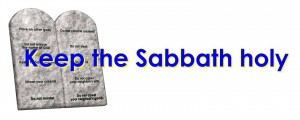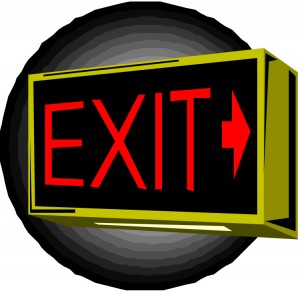Exodus 16:4–30, The Sabbath. This chapter chronicles YHVH’s efforts to literally force an irreverent, unruly and disobedient nation to keep the seventh day Sabbath. He did so in a most poignant way — through food and hunger. It’s as if he were instructing the stiff-necked and rebellious Israelites that if they refused to follow his Sabbath instructions, they would literally go hungry. “If you don’t obey me, you don’t eat.” This shows the gravity the Creator places on the Sabbath command. Yet despite these clear instructions, most in the mainstream church today, like the rebellious children of Israel of old, refuse to obey YHVH’s clear instructions regarding the Sabbath. Instead, they prefer to believe the doctrines of men proffered to them by their spiritual leaders that purport to invalidate the Sabbath command. Paul’s sage observation in Romans 8:7 describes the situation perfectly: “Because the carnal mind is enmity against Elohim: for it is not subject to the [Torah] law of Elohim, neither indeed can be.” In our day, the same question can still asked of followers of Yeshua that YHVH asked of the Israelites at that time, “How long do you reuse to keep my commandments and my laws?” (Exod 16:28).
This chapter is almost entirely dedicated to instructions pertaining to preparing for the Sabbath. This shows the priority that YHVH places on Sabbath observance for his people. Also note that these instructions are given many weeks before the giving of the Torah (law of Moses) at Mount Sinai. This is but one of many examples of YHVH revealing key aspects of his Torah-law before he gave it the Israelites in one legal corpus at Mount Sinai.
Exodus 16:4, On the sixth day…prepare. (Also note verse 23.) The sixth day of the week was to be a day of preparation for the Sabbath, so that the Sabbath rest could be complete allowing for man to fully focus on being spiritually edified in the presence of his Creator without the distractions of food preparation and the other mundane duties of life.
Exodus 16:29, Let every man remain. The essential point of this prohibition is to not go out and gather manna on the Sabbath, but to rest on this day from the routine work of supporting one’s family. This command didn’t prohibit the Israelites from gathering together on the Sabbath for purposes of teaching, worship, prayer, fellowship or spiritual edification or else YHVH’s command for the Israelites to gather together on the Sabbath for a “holy convocation” (Lev 23:2) would be contradictory. Were this command merely an injunction to not leave one’s dwelling place on the Sabbath, then Yeshua and the apostles visiting synagogues on the Sabbath would have been a violation of this Torah command. Isaiah 58:13 could be viewed as the corollary passage to Exodus 16:29. There YHVH instructs his people not to profane the Sabbath by doing their own pleasure, not doing their own ways, and not speaking their own words on this day. Instead, it is a holy day to YHVH and a day to honor him.



